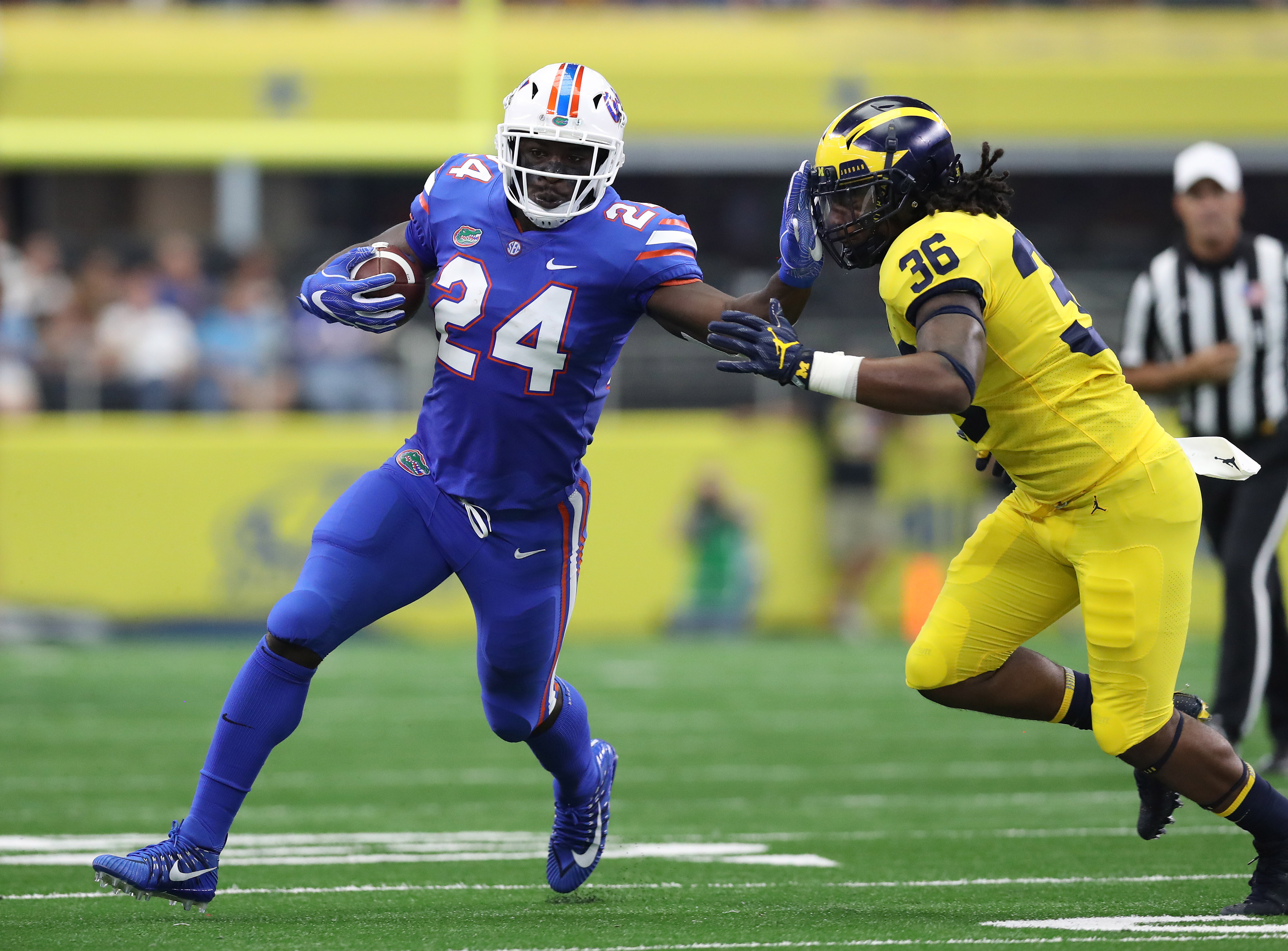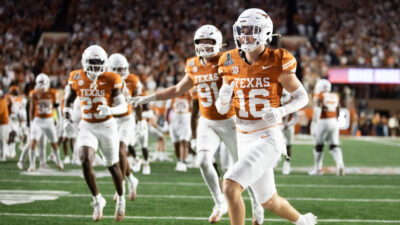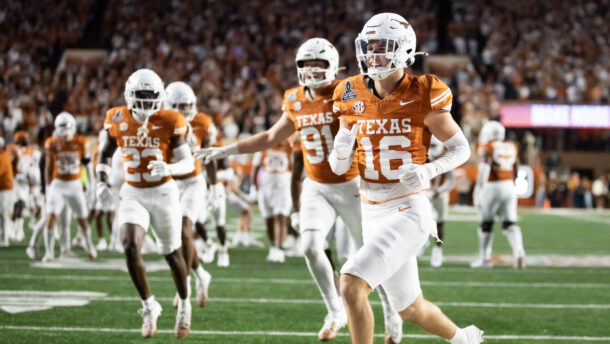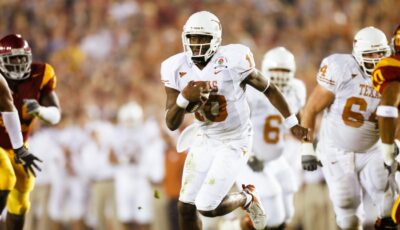
Forget the QB drama. Gators must solve running game malaise to turn corner offensively
GAINESVILLE — Hurricane Irma has the status of Florida’s next game, scheduled for Saturday in the Swamp against No. 25 Tennessee, in doubt. Whether Florida will even be able to practice much this week with the storm set to impact north Florida Monday is a fair question. But whenever Florida plays again, whether next weekend against the rival Volunteers or the following weekend at Kentucky, Jim McElwain’s team will have one big priority on offense: establishing the run.
Florida managed just 11 yards on 27 attempts against Michigan, and while six sacks contributed to that woeful total, the Gators still managed just 66 yards on 21 attempts. Everybody wants to talk quarterbacks, but Jim McElwain acknowledged last week that Florida’s offensive woes won’t improve until they manage to better run the football.
“Everything you do comes off of it,” McElwain told reporters. “Your ability to run the football and establish the line of scrimmage allows you to be a pretty decent team.”
The Gators struggled to open running lanes and move Michigan at the point of attack throughout the opener, despite having an offensive line rated highly in the preseason by multiple publications. Complicating matters, Florida didn’t adjust, neglecting to chip, use multiple tight ends, or throw screen passes — all options to compensate for poor play up front.
Perhaps the UF coaching staff believed the substantial hype — Marcus Spears even went as far as calling the Gators OL unit “the best in the SEC” entering the season — and simply didn’t develop another plan. Or perhaps the ground game was deeply hindered by the absence of Jordan Scarlett, last year’s leading rusher with 889 yards and one of 10 Gators suspended for the Michigan game. Whether the running game failed due to poor line play or the lack of Scarlett or something else, McElwain seemed to also be searching for answers last week.
“Everybody has a part (in the running game). What went wrong is a good question. It’s a team game,” McElwain said.
McElwain is correct about one thing. Failing to run the ball effectively, unfortunately, has been a “team problem” and a program problem since the departure of Tim Tebow.
Since averaging 221.8 yards per game and 5.6 yards per carry in 2009, a season where Tebow and the Gators won 13 games, the Gators have averaged 4.0 yards or less per carry in four seasons and never better than 4.5 a touch offensively.
Only two teams (2012 and 2014) ran for more than 175 yards per game, and four averaged under 150 per game (well under the national average of 158.7 in this span).
Florida has had a 1,000-yard rusher at RB only twice, in 2012 and 2015. Perhaps not coincidentally, those were the only two Gators teams to win 10 games or more.
Predictably, Florida’s woes have been worst against quality teams. Here’s how bad it has been in their past five games against ranked competition.
[table “” not found /]
That’s a 1-4 mark, and only once did a running back top 100 yards. Florida won that game.
That running the ball effectively correlates to winning football games isn’t information that will unlock the location of the lost city of Atlantis or tell us who will sit the iron throne after Season of 8 of Game of Thrones. But it is telling that Florida’s best two teams post-Tebow have run the ball reasonably well or at least had a high-level feature tailback.
What’s worse, Florida’s running game appears to have regressed under the stewardship of Doug Nussmeier and McElwain, who have seen ground games produce only 128 yards per game over two seasons. This bolsters the claims that Florida captured two SEC East 19 games under McElwain largely on the backs of Will Muschamp’s players and Geoff Collins and Randy Shannon’s defenses.
It’s a sore subject for McElwain, to be sure, but the architect behind national championship winning offenses at Alabama was hired to fix Florida’s offensive problems. He hasn’t, and in fact, the running game has been worse.
The Gators running-game malaise over the better half of a decade is attributable to a combination of factors.
The lack of quality quarterback play has allowed defenses to gear up to stop the run. The lack of a traditional running back or high-level talent at the tailback position has reduced explosive plays even when running backs get to the second level. The presence of strong defenses has rendered Florida’s playcalling extraordinarily conservative.
The Gators haven’t been as good up front, either. From 2006-2009, Florida produced seven players selected as All-SEC offensive linemen, and saw three players selected in multiple seasons. From 2010-present, they’ve produced two, and neither was first team. That’s a talent issue, both in terms of evaluation and development.
Historically, the Gators have been balanced offensively, despite the deserved accolades and praises heaped on Florida’s great quarterback play and passing offenses. Indeed, Steve Spurrier’s best offensive teams ran the ball well on the shoulders of talented running backs, from Errict Rhett to Fred Taylor to Terry Jackson to Earnest Graham.
Phil Fulmer put it this way: “For all the ‘Fun and Gun’ stuff, (Spurrier) wanted balance above all and he could absolutely pound you if you had to. It’s how they put us away several times, how they beat FSU in ’97. They could run it.”
McElwain was brought in to restore that offensive history, and make Florida a feared opponent offensively again. In year three, the team has showed little improvement overall, and the running game has regressed. Improved quarterback play would help, but if the Gators are to turn the corner offensively, they must establish the run. That task starts again when the Gators take the field against Tennessee.
Neil Blackmon covers Florida football and the SEC for SaturdayDownSouth.com. An attorney, he is also a member of the Football and Basketball Writers Associations of America. He also coaches basketball.







